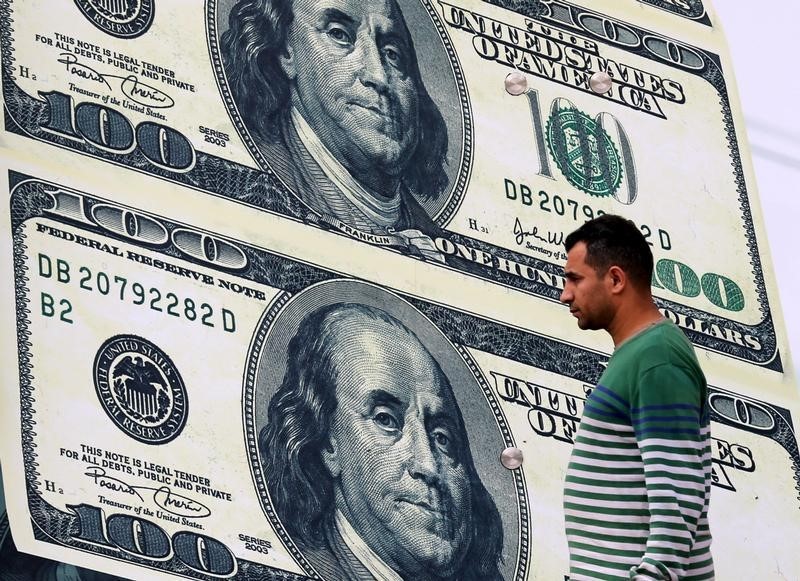By Peter Nurse
Investing.com - The dollar slipped lower in early European trade Friday, on course for a loss of nearly 2% for the week, as increased optimism that U.S. lawmakers will come together to agree a new coronavirus relief package boosts risk sentiment.
At 3:55 AM ET (0755 GMT), the Dollar Index, which tracks the greenback against a basket of six other currencies, was down 0.1% at 90.638, just above the two-and-a-half year low of 90.504 seen on Thursday.
EUR/USD climbed 0.1% to 1.2155, at its highest level since 2018, having climbed over 8% this year, the single currency’s biggest gain since 2007.
USD/JPY rose 0.1% to 103.92, while the risk-sensitive AUD/USD edged 0.1% lower to 0.7431, not far off its highest level in more than two years.
The Covid-19 surge continues to hit the U.S. hard, with this week seeing 14 million recorded, including the highest number of daily deaths, new infections and hospitalizations since the pandemic began.
However, the safe haven dollar hasn’t seen any benefit from these worries amid optimism over the successful roll-out of vaccines and new fiscal stimulus to boost the U.S. economy.
A $908 billion Covid-19 aid package was gaining traction in Congress, with senior Democrat officials backing the proposal and Republican hardliner Mitch McConnell stating that a deal was “within reach” as he proposed a smaller package.
The monthly official employment report, due for release later Friday, may be the catalyst to push the two sides together. Nonfarm payrolls are expected to rise by 469,000 jobs in November, a sharp slowdown from 638,000 jobs added in October. This follows on from a disappointing ADP jobs release, which showed private payrolls grew at their slowest pace since July.
Elsewhere, GBP/USD dropped 0.1% to 1.3443, having climbed as high as $1.35 on Thursday on a report the U.K. and EU have made progress on fishing quotas, raising hopes that a post-Brexit deal is within sight.
However, some of this optimism has retreated after U.K. Business Secretary Alok Sharma said Friday that these trade talks are in a “difficult phase”, and after France threatened to veto any deal it didn’t approve of, suggesting there was still plenty of negotiation to take place.
“Markets are still assessing how much this is simply part of the negotiating strategy,” said analysts at ING, in a research note, “but with any deal having to be agreed within the next few days it is no surprise investors (who have retained an optimistic tone on Brexit so far) are getting increasingly nervous.”
The new deal on OPEC+ output policy supported oil currencies, with Russia's ruble gaining 0.3% to hit a three-month high against the dollar of 74.175.
